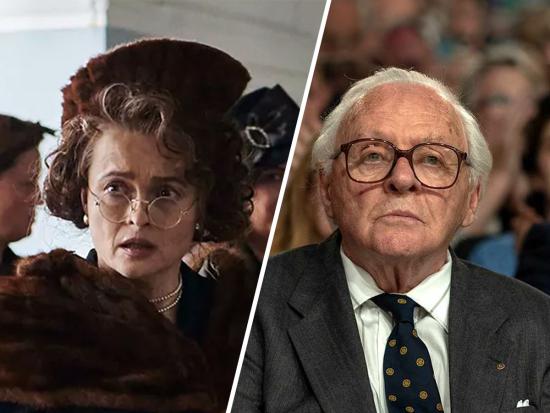
Helena Bonham Carter, the renowned actress known for her diverse roles spanning decades, including the “Harry Potter” series, “Les Misérables,” and “The King’s Speech,” portrays Babette Winton, mother of true-life hero Nicholas, in the film “One Life” starring Anthony Hopkins. Winton, whose heroic efforts saved hundreds of children during the Holocaust, epitomizes the essence of heroism and provides the basis of the inspirational drama, directed by James Hawes.
Upon reading the script, the award-winning actress was immediately struck by the unique opportunity it presented. “It’s very rare when you get asked to do something that has a point and has something that could possibly make a difference,” she expressed. She highlighted the profound impact of the film’s central figure, an “everyman,” stating, “The hero of Winton is such a great man. We should have many more Wintons.”
Bonham Carter lamented the scarcity of such figures in contemporary society, emphasizing the need for individuals who embody active goodness. “We’re short on heroes these days…we are impoverished for (them),” she remarked.
Drawing from her research for the role, Bonham Carter reflected on the distinction between “passive goodness and active goodness,” a concept epitomized by Winton’s actions. Quoting Winton’s daughter’s biography of her father, “If It’s Not Impossible…The Life of Sir Nicholas Winton,” she highlighted the definition of active goodness as “’The giving of one’s time and energy and the alleviation of pain and suffering’… He’s an example of that,” she explained. Through her portrayal of Babette, she aimed to capture the essence of active goodness and the transformative power of compassionate action.
Discussing the film’s potential impact, Bonham Carter expressed hope that it would inspire viewers to emulate Winton’s heroism. “I would hope that this movie inspires heroes, it inspires people to make a difference… and action,” she affirmed. In a world often overshadowed by negativity and intolerance, she believes that stories like Winton’s serve as reminders of humanity’s capacity for kindness and compassion.
Bonham Carter also delved into the character of Babette, highlighting her journey from reluctance to unwavering support for her son’s endeavors. “She’s a little reluctant, just like everybody is, but she quickly jumps on board to support her son,” she observed. Through her portrayal, she sought to explore the complexities of the mother-son relationship and the profound sense of pride and sacrifice it entails.
Reflecting on Babette’s role in the mission, Bonham Carter emphasized the importance of maternal instinct and familial bonds. “I think when she hears that he is so set on it, there’s a huge amount of pride that she feels… She made the son that was my position,” she shared. In portraying Babette, she sought to capture the depth of maternal love and the willingness to risk everything for the sake of family.
Bonham Carter stressed the collaborative nature of Winton’s heroic efforts, emphasizing the role of the entire team, including Babette, in their success. “It’s rare to have a mother-son relationship like that… it was a team of people. He didn’t do it on his own,” she reflected.
In her portrayal of Babette, Helena Bonham Carter not only honors the memory of a remarkable woman but also underscores the enduring power of heroism and compassion in shaping the course of history. Through “One Life,” she invites audiences to embrace the call to action and become heroes in their own right, inspired by the sacrificial spirit of individuals like Nicholas and Babette Winton.
Guest post by DeWayne Hamby. DeWayne is a communications specialist and longtime journalist covering faith-based music, entertainment, books, and the retail industry. He is the author of the book Gratitude Adjustment. Connect with him at www.dewaynehamby.com or on twitter – @dewaynehamby.


